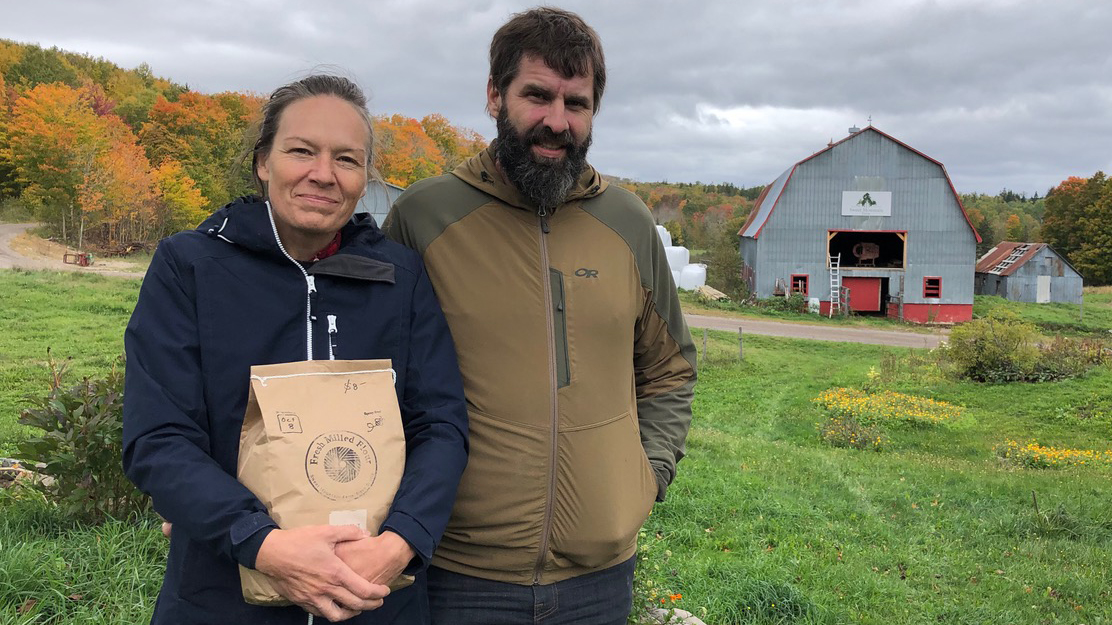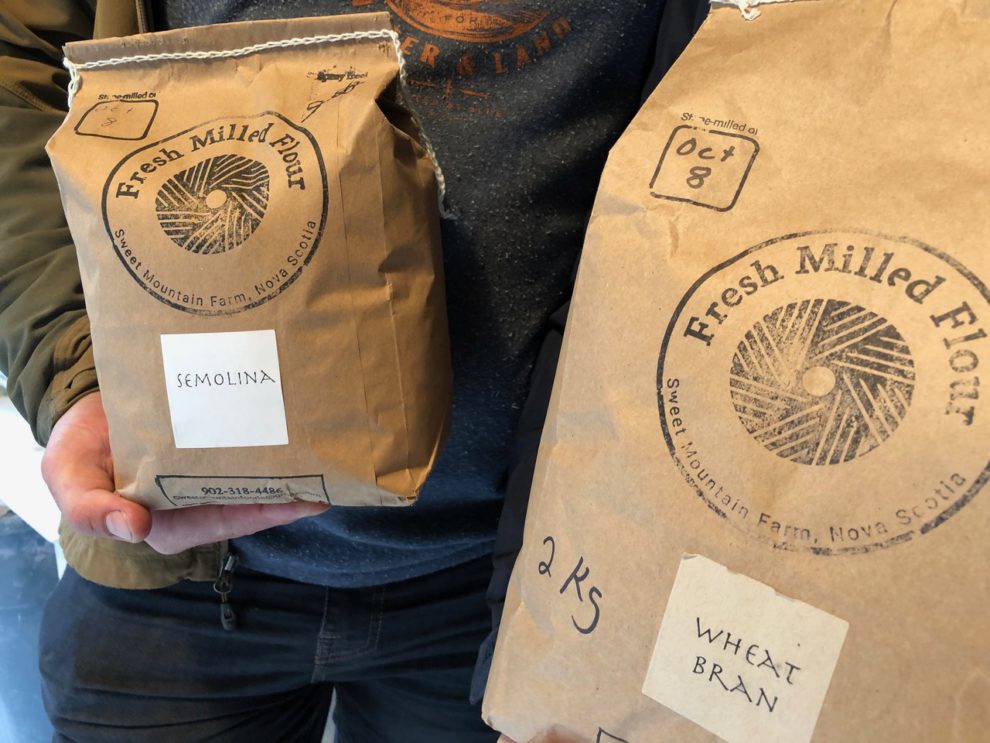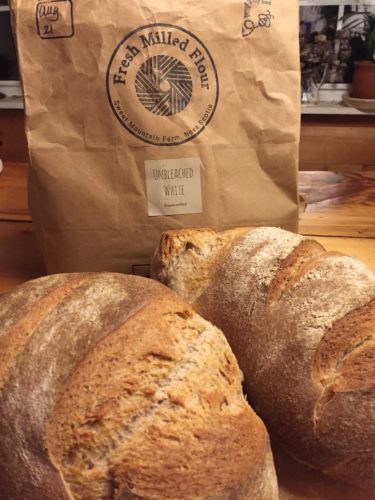Antigonish County family farm milling local grain for pandemic baking boom
Farm mills up to 400 pounds of home-grown, stone-milled wheat a week

caption
Riley and Gabe Chisholm have added spray-free, stone-milled flour to the list of foods for sale from their sixth-generation farm in Antigonish’s Ohio Valley.Gabe Chisholm looks through the unfinished millhouse window. Outside, the barn and fields of Sweet Mountain Farm nestle between hillsides ablaze with fall colour in the Ohio Valley of Antigonish County.
“Historically there was a lot of grain grown around here,” he said. Back in the day, there were two stone mills within four kilometres of this spot.
“I’m not able to access any of that knowledge,” Chisholm said, “because it died out in my father’s time.”
Today, this farm is one of only a handful of operations growing and milling their own grain in the Maritimes, and, thanks to the pandemic, business is booming.
COVID-19 revealed real vulnerabilities in our food supply. Outbreaks shut down two meat-packing plants in Alberta for weeks at a time. Those two plants process 70 per cent of the nation’s federally inspected beef. Grocery stores couldn’t stock staples like flour and yeast. Food security was suddenly top of mind.

caption
The Chisholms choose to stone mill their grain at a slow rate because it keeps the nutrients in the flour from being destroyed. Current offerings include whole wheat, unbleached white and semolina flours, all milled from their hard, red spring wheat.The Chisholms have been thinking about food security for some time. Gabe is the sixth generation to farm here. His wife, Riley, is a sociologist. They’re looking back to the old ways and trying to build a better food system, quite literally, from the ground up, starting with beef and now flour.
The rise of industrial agriculture and the impact of mad cow disease forced Gabe’s father to give up farming. In 2005, when Gabe returned from working out West the farm had been abandoned for several years.
Rejecting the soil-depleting industrial farming model, Gabe researched regenerative farming principles online.
Gabe is an introvert, but he can talk about soil health all day long.
“People don’t realize how integral animals are to the maintenance of soil.”
A cow’s hooves are perfectly designed to trample the organic matter back into the soil, he explained. That massively increases soil’s water holding capacity, handy for droughts.
They were experimenting with a table-top mill when the pandemic hit.
“We thought it was the right moment to launch something a bit larger,” Riley said.
So, they ordered a bigger stone mill and planted a heritage wheat variety favoured by bread-makers. By late August, they harvested and milled the first crop of their own spray-free, stone-milled wheat.

caption
Homemade sourdough bread baked with Sweet Mountain Farm’s unbleached white flour. Sourdough baking became a major trend during lockdowns across the globe.And people love it.
Depending on their online orders, the Chisholms mill between 50 and 400 pounds per week.
One of their biggest customers is Neck of the Woods Restaurant in Cape Breton. Co-owner/chef David Kyte said he noticed an improvement in his sourdough as soon as he started baking with it. Using fresh flour gave the bread “a beautiful light, fluffy texture and open crumb.”
“There was a delicious, deep flavour to the wheat,” Kyte said. “It’s earthy and hearty and warm and feels healthy and good to eat.”
He doesn’t mind paying a little more per bag for flour that was milled the day before. Like the Chisholms, he cares about how food is grown.
“They obviously care deeply about what they’re doing, their land, and, I think … their community,” Kyte said.
The COVID flour shortage didn’t last long, and, at $7.50 to $9 per kilo, the Chisholms’ flour isn’t cheap. But people keep buying it.
Riley said they’re considering other products. Salt or maple sugar is next.
“Staples: If you were to go back and look at things that people during the Depression really wanted and had difficulty accessing, that’s where we’re headed,” Riley said.
“Because we want to make food.”
Correction:
About the author
Rose Murphy
Rose Murphy is a multimedia journalist in Nova Scotia. She is interested in stories about unusual characters, small business, resilient communities,...

A
Amy Brierley